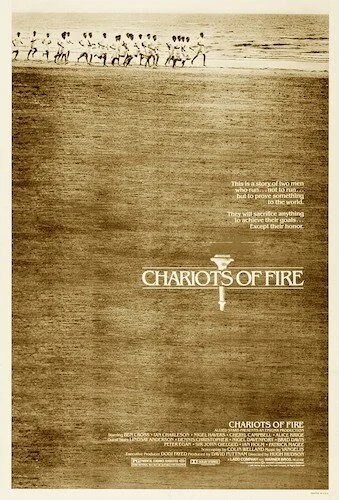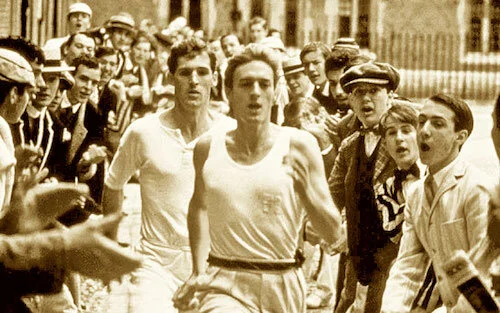Chariots of Fire
This review is a part of the Best Picture Project: a review of every single Academy Award winner for the Best Picture category. Chariots of Fire is the fifty forth Best Picture winner at the 1981 Academy Awards.
As a documentary filmmaker, Hugh Hudson was clearly fascinated by the beauty that life itself can bring out. When it comes to his most adored feature film, Chariots of Fire, his obsession becomes exemplified. Much of what makes Chariots of Fire an admired work is his framing of life in aesthetically brilliant ways. Unlike acting vehicles, this is a style-over-substance affair, as if Hudson was channeling Leni Riefenstahl by turning a human athlete into a work of art.
From the very first shot until the end (which turns the film into a cycle of sorts), this is the show of composer Vangelis and cinematographer David Watkin. This otherwise decent story becomes a massive triumph through these visionary means. The slow motion shots remain the strongest tentpoles of the film, because of how much brilliance they wring out of each feat. Let's not even forget about the music; the introductory theme that has been referenced to death isn't even the best track here. When you are watching the various Olympic events, it feels like a cinematic symphony.
There isn’t much to discuss with Chariots of Fire, mainly because it is an experience more than a story.
So, why the low-ish score? Well, I feel that all of the heart from this film comes from the presentation. The story itself is kind of so-so. Two young British athletes in the mid '20s are both competing for their faiths (one Catholic, one Jewish). These attempts at self fulfillment during the world's biggest sporting event (the Olympics) renders Chariots of Fire a spiritual release. There's barely any dread. You never feel much tension, despite Hudson's best efforts to create some. Instead of conjuring up a compelling narrative, Hudson crafts an idolization of two real world winning athletes. It makes for a fulfilling feast, but not a tantalizing tale. Chariots of Fire is good enough to at least be attempted. Who knows? Maybe it will resonate more with you than it did for me.
Andreas Babiolakis has a Masters degree in Film and Photography Preservation and Collections Management from Ryerson University, as well as a Bachelors degree in Cinema Studies from York University. His favourite times of year are the Criterion Collection flash sales and the annual Toronto International Film Festival.





